Julie D’Aubigny Was A 17th-century Bisexual French Opera Singer And Fencing Master Who Killed Or Wounded
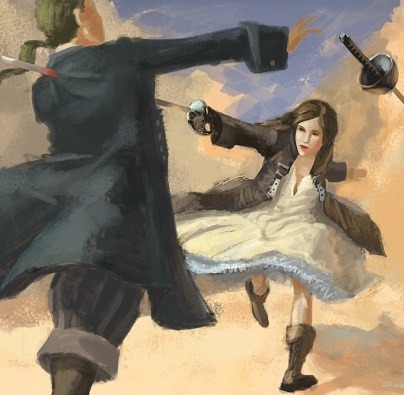
Julie D’Aubigny was a 17th-century bisexual French opera singer and fencing master who killed or wounded at least ten men in life-or-death duels, performed nightly shows on the biggest and most highly-respected opera stage in the world, and once took the Holy Orders just so that she could sneak into a convent and shag a nun.
(via Feminism)
More Posts from Bsdndprplplld and Others
I read this and it got me thinking that it's funny how many goals and standards people tend to have. my only goals are to have fairly good health and to improve my math skills constantly. maybe it's my obsession, maybe it's the fact that I just gave up long time ago on femininity, social skills, so called emotional intelligence and how I present to other people
besides… why does this sounds like I'm supposed to only date men lmao




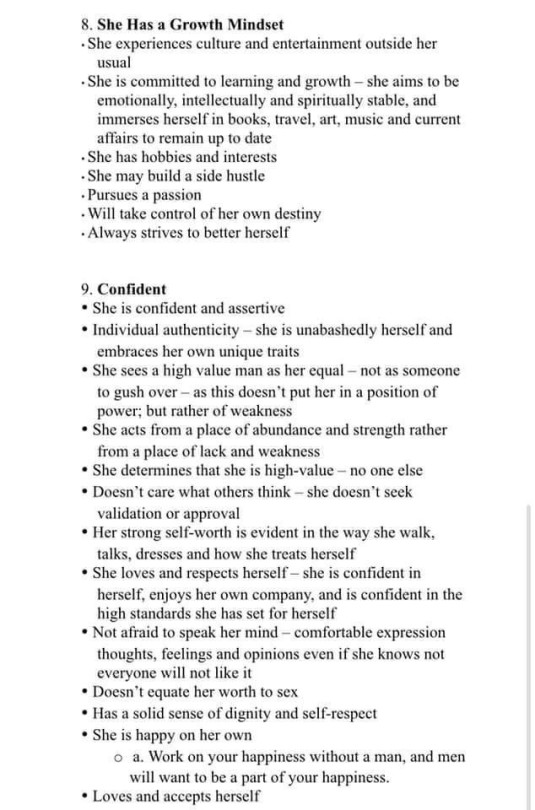
thinking about the time a prof told us that in real research mathematics it's fine to be slow, speed itself is not essential, as long as you can find it within yourself to make consistent unyielding inexorable forward progress, like the time some guy stole an M60A3 tank and terrorized a suburban neighborhood with it, said guy wasn't going that fast but plowed through cars and telephone poles and shit no problem. i'm not kidding that's what he said, that's the metaphor he used, he told us that the act of mathematics is like the 1995 san diego tank rampage
today I learned that for a surface with boundary, which I believe we can say a straw is, the genus is equal to that of a 2-manifold obtained from attaching disks to the boundary. hence the straw has genus equal to that of a 2-sphere, which is 0, therefore a straw has 0 holes
also a straw is not homotopic to a torus I think, but rather to S¹, as it's a product of S¹ and a closed interval, which is contractible. a torus has the fundamental group S¹×S¹, thus they cannot be homotopy equivalent. buuut that requires the straw to be infinitely thin so maybe I'm too idealistic for this claim to hold and it is in fact equivalent to a torus
lmao I love math but I can't stop laughing at the fact that it took me two years of university to be able to have this discussion
I’m really into internet discourse but only pointless and stupid internet discourse like how many holes there are in a straw (it’s 2)
My favorite example of girl math is when David Hilbert and Albert Einstein couldn't solve how energy conservation worked in general relativity, so Hilbert asked Emmy Noether about it and she solved it for them.

Me when I need to rotate 720 degrees to return to my original state

@dimiclaudeblaigan asked for a tutorial on how to begin drawing. Good news! If you can draw a funky looking stick man, you have already started!
I think that stick people are a great starting point for artists because of the things you can learn from them that will be important later on.
If you are able to draw a circle and a couple of lines, you can easily put together a stick person.

Congratulations! You have started to draw. :)
A stick person is a very minimal artistic representation of a real life person. It is simple yet recognizable, and is widely used in art, media, and signage.

But what can a stick person teach us about drawing people that look more like… well, people? Lets have a look!
By simply adding a few more lines, we can add a pair of eyes and a mouth. Maybe even a little triangle nose! Or half circles for ears. We can now draw a face, which provides a basis for all sorts of expressions.

These simple additions can allow us to explore the wide range of human emotion and individuality.

This may seem like the basics of the basics. But that is what we want! In order to get to the point where we are able to draw complex, elaborate representations of humans and objects, we will need to start with simple shapes like lines and circles and build our understanding from there.
For instance, lets give our stick person some cool new features, such as hands and feet. I chose little squiggly circles to represent hands, and triangles to represent feet.

We can go a step further and modify the body of the stick person to include shoulders, hips, elbows and knees. These parts of the human body are quite complex in real life But here, all we need to do is add a few simple lines and dots to our stick person.

The lines provide some additional structural elements to our stick person's body, which are the shoulders and the hips. The dots indicate the points of articulation - elbows and knees, the places where the arms and legs bend!
Now we can use our stick person to show us an even wider range of human movement, action, and expression.

Our little drawing of a human being is evolving! All it took was adding a few more lines and shapes here and there.
By elongating some of the existing lines and making the head an oval instead of a circle, we can give our stick person proportions that resemble that of a real life human.

By this point, we have managed to add more complexity to our stick person simply by using our ability to draw lines, circles, and other basic shapes!

These basic ideas are the building blocks that will enable us to create more complex shapes.
The next part may be a considerable step up if you are absolutely new to drawing, but I have decided to include it in order to show you how complex objects like the human body can be built from shapes that are a bit more complex than circles and lines.
For example. Two ovals and a rectangle can be combined to create a cylinder.

Six squares can be combined to create a cube, or a box. Here, each square is distorted slightly depending on which way the cube is facing.

Note that the back faces of the cube and the bottom of the cylinder are hidden. These shapes allow us to visualize that which should not normally visible.
A sphere from all perspectives can be represented by a circle. But we can make it more like a sphere by adding lighting and shadow if we so desire.

Cubes, cylinders, and spheres are examples of 'solid shapes' because they consist of 3 dimensions.
Lets see how these solid shapes can be used to compose the human body.
By stacking three cylindrical objects, we can create a torso. Two spheres have been added to form shoulders, while a smaller cylinder forms the neck.

An arm is an alternating sequence of spheres and cylinders connected together. Note that the hand has been simplified for this example.

We can apply these solid shapes to the rest of the body to give us a more recognizable representation of the human form. It doesn't even have to be perfect. And just like that, our stick figure now has a silhouette that is unmistakably a person!

In the above examples, notice that we kept the stick person at the beginning while building up the shapes and solids around it. This is because the stick person serves as a guide for positioning the body and its various parts -> also known as posing.
You can do the same thing to everyday objects! Here, I drew a wine glass by stacking these three dimensional solid shapes.

The cup and its contents are two ovoid shapes that were cut in half. The stem is a very thin cylinder shape. The base is a cylinder with a slightly wider bottom.
Solid shapes help inform us how objects and parts of the human body may appear from different perspectives.

For example, a sphere can be used to demonstrate how the human head appears when looking up or down, turned to the side, or tilted at an angle.

With these examples, I hope I have managed to convinced you that if you can draw a circle and a couple of lines, you can draw a person! You just have to train your eye to recognize the simple shapes within complex objects. Try it with everyday objects as well! Or even your favourite media! A drawing subject can be as simple or as complex as you envision it to be.

Once you have mastered that, there are many aspects of drawing you can explore from here that may require you to seek additional resources or a fellow artist's advice.

Last of all, remember that drawing is an iterative process. Even if you draw something correct the first time, you will need to draw it again and again to get it right all times! And by making small changes like the ones we explored in this tutorial, your drawings will gradually transform!
I hope what I've demonstrated here are enough to provide the basics of how to get started with drawing objects and people, and also to help refresh more experienced artists. :) Hopefully I didn't go too off topic with what was requested, and let me know if there are any more questions I can answer.
Cheers :3
ok i get it now, most people need plans and structures so then they can study what they're really into in the future
btw today i'm doing operations on topo spaces, i love that already
i gotta say i don't buy all them planning strategies and tips that require more effort than just sitting and doing the work
i mean that might help some people but i find that when i am doing something important to me i need no plans nor do i need motivation, i also don't procrastinate, everything falls into its right place
and if achieving something takes so much effort in preparation, is this even supposed to be a thing? idk, maybe that's the reason why i have no external proof of my work lol
yes, this, but also among other stem courses in a typical school, math is taken the most seriously. idk about other countries, but in poland in highschool people study chemistry, biology, physics and geography only if they decide to take the advanced final exams in these subjects. with math, everyone has take the standard level exam, so it can't be ignored like other subjects
up to highschool everyone has to complete their share of stem courses, but with the subjects other than math, the teachers often allow students to pass by memorizing the theory or by making some extra projects to earn points. with math you can't do that. when someone struggles with physics, the teacher sometimes says "alright, next year you won't have to study physics, so just learn those formulas and definitions and write them down on a test and I will let you pass". in math this is not an option, the student will have to take n more years of math courses
also, math mainly requires learning new skills, not just new information. many people never memorize the "dry theory" in highschool, because you have access to a reference table of formulas during exams and your job is only to know where to use those formulas – no need to memorize anything. but this does not come naturally to everyone and I think a huge part of the problem is teaching people how to work on their problem solving skills. I tutored a few students who believed they were bad at math and their mindset was "I can solve this type of problem because I know how to substitute into this formula, but when the problem is slightly different I panic, because the teacher never showed us how to solve it", which can be fixed by practicing a wider variety of problems and practicing the awareness of one's thinking process
people do not understand that problem solving is a skill on its own and I blame schools for that, because what we are offered is the image of math being about re-using the same kind of thinking processes but with different numbers. heck, when I was in elementary school I thought this is what math is about and I hated it because it's so boring and repetitive. I can imagine, when someone believes that this is what math is supposed to be and then they see the "more real math", which is about creativity, they panic (and rightfully so, they've been lied to)
my unpopular opinion is that not everyone can be good at this, just like I will never be good at understanding literature – my brain just sucks at processing this kind of stuff and I have aphantasia which doesn't help at all. but what makes it even worse for those people is the belief that it should be about repeating the same patterns over and over, so when they see that it's something completely different, it must be very frustrating – the reality is inconsistent with their beliefs
I am sure it doesn't cover the entirety of the "oof I always hated math" phenomenon, but it certainly does explain some of it, especially in the context of the education system in my country
As I said in a previous post, I have deep sympathy for the frustration of people who are good at math when they see math so almost universally hated by children and adults
And again and again, they try to explain that math is very much within everyone's reach and can be fun and, at least in western countries, education was to blame, messing up this very doable and fun thing by teaching it wrong
But I still gotta wonder - why math? If it is really just education messing this up, why does it mess up so much with math, specifically? I'm sorry but I still cannot shake the sense that even if it's just bad teaching, math is especially vulnerable to bad teaching.
Or is it maybe just that math is the only truly exact science, so there is no margin of error, so unlike every other field where you can sortof weasel around and get away with teaching and retaining half-truths and oversimplifications and purely personal opinions, math is unforgiving with the vague and the incorrect?
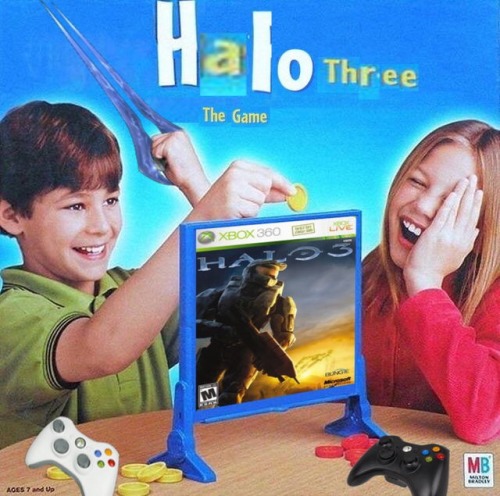


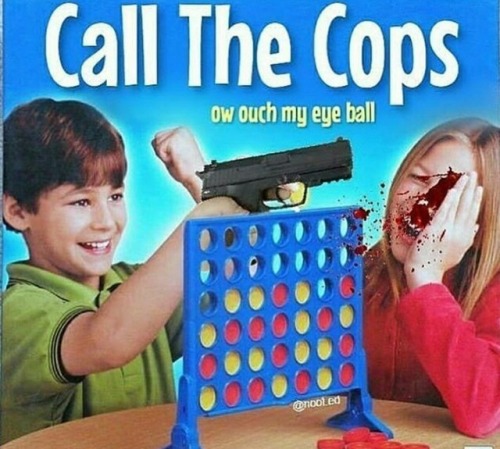





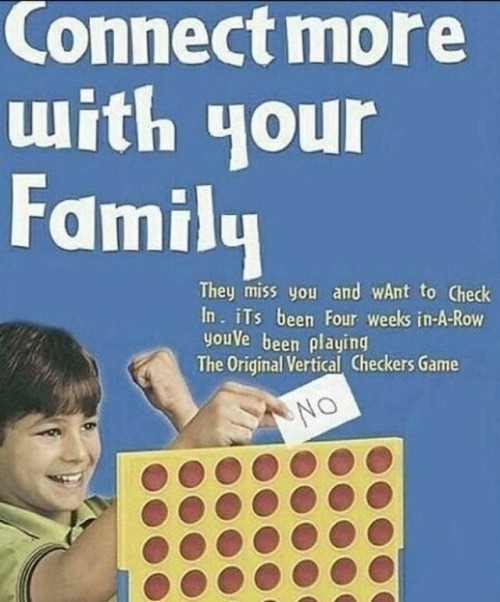
-
 allhailtheaxolotl liked this · 1 month ago
allhailtheaxolotl liked this · 1 month ago -
 trans-nuclear-cockroach reblogged this · 2 months ago
trans-nuclear-cockroach reblogged this · 2 months ago -
 keeper-of-gates liked this · 2 months ago
keeper-of-gates liked this · 2 months ago -
 coraldreamerharmony liked this · 5 months ago
coraldreamerharmony liked this · 5 months ago -
 echostalker reblogged this · 5 months ago
echostalker reblogged this · 5 months ago -
 echostalker liked this · 5 months ago
echostalker liked this · 5 months ago -
 swordrebel reblogged this · 8 months ago
swordrebel reblogged this · 8 months ago -
 sun-777-green-blog liked this · 9 months ago
sun-777-green-blog liked this · 9 months ago -
 rubia-zero liked this · 9 months ago
rubia-zero liked this · 9 months ago -
 dany-mitsuki liked this · 10 months ago
dany-mitsuki liked this · 10 months ago -
 overdueapple reblogged this · 11 months ago
overdueapple reblogged this · 11 months ago -
 overdueapple liked this · 11 months ago
overdueapple liked this · 11 months ago -
 whocares12345670 liked this · 1 year ago
whocares12345670 liked this · 1 year ago -
 chubbled reblogged this · 1 year ago
chubbled reblogged this · 1 year ago -
 da-silliest-snek reblogged this · 1 year ago
da-silliest-snek reblogged this · 1 year ago -
 da-silliest-snek liked this · 1 year ago
da-silliest-snek liked this · 1 year ago -
 void-of-erebos reblogged this · 1 year ago
void-of-erebos reblogged this · 1 year ago -
 veetvoojagigslostbiro liked this · 1 year ago
veetvoojagigslostbiro liked this · 1 year ago -
 howtotrainabraincell liked this · 1 year ago
howtotrainabraincell liked this · 1 year ago -
 toasterfae reblogged this · 1 year ago
toasterfae reblogged this · 1 year ago -
 2ws2ls reblogged this · 1 year ago
2ws2ls reblogged this · 1 year ago -
 eldritch-transgirl reblogged this · 1 year ago
eldritch-transgirl reblogged this · 1 year ago -
 okabudge liked this · 1 year ago
okabudge liked this · 1 year ago -
 pure-electric liked this · 1 year ago
pure-electric liked this · 1 year ago -
 smellslikebutz liked this · 1 year ago
smellslikebutz liked this · 1 year ago -
 sewer-dweller liked this · 1 year ago
sewer-dweller liked this · 1 year ago -
 frenchpressmachine liked this · 1 year ago
frenchpressmachine liked this · 1 year ago -
 bethanythebogwitch reblogged this · 1 year ago
bethanythebogwitch reblogged this · 1 year ago -
 bethanythebogwitch liked this · 1 year ago
bethanythebogwitch liked this · 1 year ago -
 thechelaxian liked this · 1 year ago
thechelaxian liked this · 1 year ago -
 puffinpastel reblogged this · 1 year ago
puffinpastel reblogged this · 1 year ago -
 rybakhaosa liked this · 1 year ago
rybakhaosa liked this · 1 year ago -
 jazzapples3 reblogged this · 1 year ago
jazzapples3 reblogged this · 1 year ago -
 jazzapples3 liked this · 1 year ago
jazzapples3 liked this · 1 year ago -
 fayerita1lz liked this · 1 year ago
fayerita1lz liked this · 1 year ago -
 ich-bin-khzar reblogged this · 1 year ago
ich-bin-khzar reblogged this · 1 year ago -
 pinkflavoredlemonade liked this · 1 year ago
pinkflavoredlemonade liked this · 1 year ago -
 void-of-erebos liked this · 1 year ago
void-of-erebos liked this · 1 year ago -
 worldbuilding-tomfoolery reblogged this · 1 year ago
worldbuilding-tomfoolery reblogged this · 1 year ago -
 rat-recycler liked this · 1 year ago
rat-recycler liked this · 1 year ago -
 dreorzen reblogged this · 1 year ago
dreorzen reblogged this · 1 year ago -
 inconstantsearchofperfection reblogged this · 1 year ago
inconstantsearchofperfection reblogged this · 1 year ago -
 parasite-core reblogged this · 1 year ago
parasite-core reblogged this · 1 year ago -
 phoenixfire-thewizardgoddess reblogged this · 1 year ago
phoenixfire-thewizardgoddess reblogged this · 1 year ago -
 error-404-oops-page-not-found reblogged this · 1 year ago
error-404-oops-page-not-found reblogged this · 1 year ago -
 kitaava liked this · 1 year ago
kitaava liked this · 1 year ago -
 something-random8 liked this · 1 year ago
something-random8 liked this · 1 year ago

⁕ pure math undergrad ⁕ in love with anything algebraic ⁕
292 posts